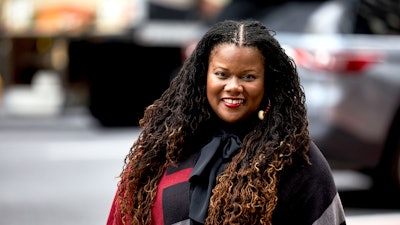 Dr. Dara N. ByrnePHOTO COURTESY OF CUNY
Dr. Dara N. ByrnePHOTO COURTESY OF CUNY
“Macaulay can provide an elite education — or a model that exemplifies the best of what higher ed has to offer — but without elitist recruitment or admissions processes,” says Byrne, who has been a faculty member at John Jay College of Criminal Justice (part of CUNY) since 2003. From December 2016 to July 2022, when she left to begin her new position, she served as associate provost for undergraduate retention and dean of undergraduate studies. She oversaw 15 departments and was responsible for the academic success of John Jay’s 13,000 undergraduates.
“There is so much talent and we can’t afford to waste it by using methods and measures that don’t align with what we know about cultivating and nurturing future scholars and leaders,” she adds. “Justice and equity are driving forces in most everything I do.”
Macaulay is a highly selective honors college for students in the CUNY system. Less than 10% of applicants are accepted. Those New York residents who make it receive full-tuition scholarships or tuition waivers (for individuals from out of state). Students enroll in one of eight senior CUNY colleges, taking most courses at their home campuses where they have access to the campus honors lounge. Each scholar receives financial support for study abroad and specialized advisors through the Macaulay Advising Program.
“I hope that in occupying this kind of role and doing things the way that I like to do them — rigorous, evidence-based, at scale — we can really contribute to a very important piece of the conversation, which is how do you do selectivity with a CUNY mission in mind,” says Byrne.
Her goal is to provide an elite education without elitist practices that exclude communities of color and low-income people. This includes scaling up the best of what public education has to offer while eschewing elitist admissions practices that don’t allow for talent identification in diverse context.
“[Macaulay] graduation rates are double that of the rest of the system,” Byrne says. “The racial gap in graduation rates is minimal. They focus on experiential learning in New York City, mentoring and research support for students. To do that with a population that is increasingly coming from the lowest income brackets is exciting to me.




















